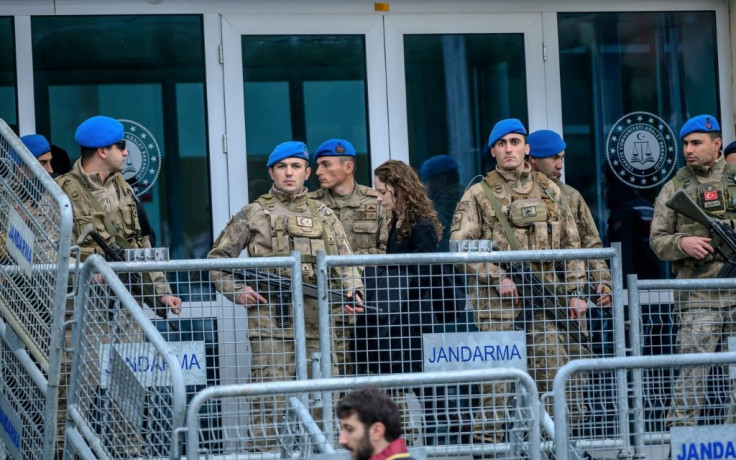Turkish Court Ignores European Ruling Calling For Release Of Businessman
A Turkish court on Tuesday ignored calls to release a businessman charged with seeking to overthrow President Recep Tayyip Erdogan's government, despite a ruling by Europe's top rights body.
Osman Kavala, a leading figure in Turkey's civil society who has funded projects across the country, has been in pre-trial detention since November 2017.
Turkish prosecutors accuse him and 15 other leading figures in civil society of involvement in anti-Erdogan protests in 2013 and the failed coup in 2016.
Kavala, who appeared in the dock wearing a dark jacket and a white shirt, dismissed the charges as "completely groundless", according to an AFP correspondent in court.
"The 657-page indictment... proves I am innocent rather than guilty," he told the court.
"I demand this unlawful and discriminatory practice that placed me in prison for two years come to an end," he added.
The Turkish court in Silivri in the outskirts of Istanbul set the next hearing for January 28.
The crowd applauded Kavala as he was led from the courtroom, saluting his supporters.
Two weeks ago, the Strasbourg-based European Court of Human Rights (ECHR) urged Turkey to "take every measure to put an end" to Kavala's detention and "to secure his immediate release".
In a damning ruling, the ECHR said Kavala was being held "not only on acts that could not be reasonably considered as behaviour criminalised under domestic law" but which were also protected by the European Convention on Human Rights.
Critics have denounced the charges as politically motivated and an example of Turkey's crackdown on civil society.
But Erdogan has accused Kavala of being a Turkish agent of US financier George Soros.

Turkish MPs from opposition parties as well as diplomats from foreign consulates and international observers attended the Christmas Eve hearing in a show of solidarity.
Among them was Sergey Lagodinsky, chair of the European Parliament's EU-Turkey Delegation.
Ankara had failed to implement the European court's ruling which had sent "a very strong signal to the judges and the government in Turkey", he told AFP.
"I think for a country that has, in its constitution and its legal framing, European human rights standards as part of its legal DNA, this is a very disappointing outcome."
Canan Kaftancioglu, head of the opposition CHP party in Istanbul, said the rule of law was not functioning in Turkey.
"Kavala should not have remained in prison even one second after the European court's ruling," she told AFP.
The court also heard testimonies from two police officers who were on duty during the 2013 mass protests in Istanbul.
"In my personal opinion, Gezi was a protest that exceeded its purpose and caused serious damage," said one of the officers, Ercan Orhan Aydin.
The nationwide protests in 2013, which threw up one of the biggest challenges to Erdogan, then prime minister, were sparked by the government plans to demolish Gezi park -- the only green space in the centre of the city.
But the police officer said he did not know any of the defendants and was not aware whether they were involved in any violent act at the time.
"I saw Osman Kavala here for the first time," he said, when asked by the defence lawyer.
A respected figure in intellectual circles, Kavala is chairman of the Anatolian Culture Foundation, which promotes human rights through art, including with neighbouring Armenia, with which Turkey has no diplomatic ties.
© Copyright AFP 2024. All rights reserved.











